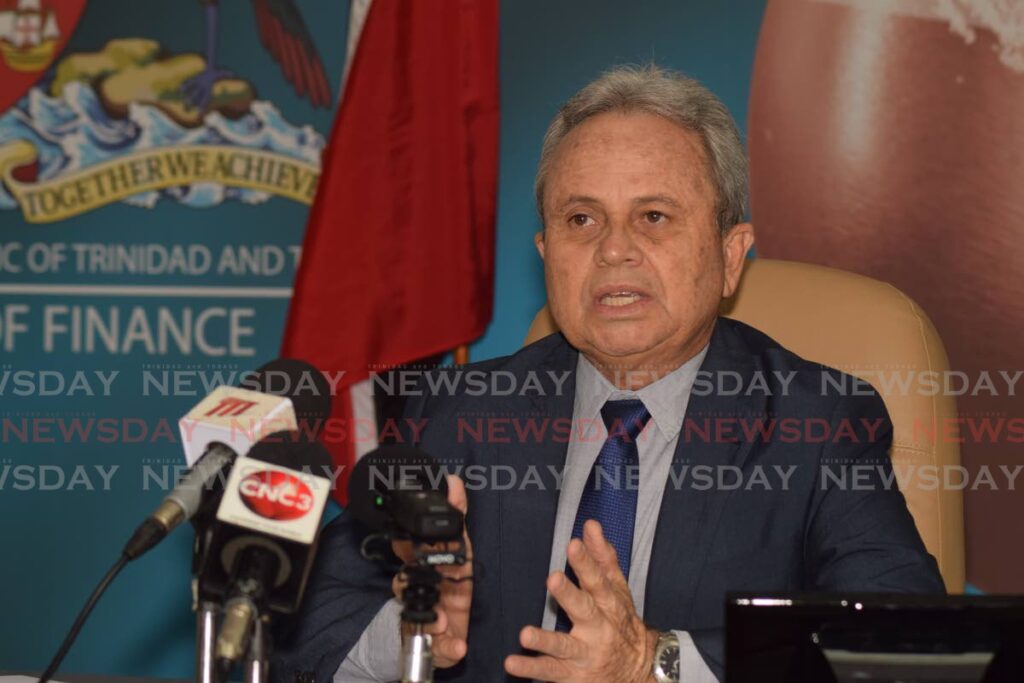Imbert: Government will definitely have to borrow to pay back pay

NO matter what the government and unions agree to on an increase in wages, the State will have to borrow money to pay the resulting back pay. It is also possible that loans will be needed to cover the increased wages.
Speaking at a post-Cabinet media briefing at the Diplomatic Centre, St Ann’s, on Thursday, Finance Minister Colm Imbert said even if the unions accept the government’s initial offer of two per cent over an eight-year period, the government would have to borrow money to finance that.
The unions have rejected that offer and will meet with the Chief Personnel Officer (CPO) from June 10-24.
Imbert added, “And, again, I want to stress that we are running a deficit budget. We have been running a deficit budget in Trinidad and Tobago now since 2009.”
He added that the country has been borrowing since then and any back pay, regardless of the amount, will have to be funded by a loan.
“Whatever the back pay is, $1 billion, $2 billion, it is going to be a large number. We will have to borrow. There is no pot of money that we can just dip our hand in and pull out the back pay. Because we are running a deficit budget, and because that back pay will go as an expenditure item, it will increase the amount of government expenditure and, therefore, we'll have to borrow because we run a deficit.”
In a tweet on May 22, Imbert said the two per cent increase would cost $350 million in back pay and an additional $300 million in annual recurring expenditure for public servants. The next day he tweeted that a five per cent wage increase from 2015 -2020 for all affected negotiations will cost $9.15 billion in back pay and an increased recurring expense of $2.2 billion.
On May 27, union leaders led hundreds of workers through Port of Spain to protest against the offer. The leaders had a message to the government saying workers are important and a two per cent offer was unacceptable.
The Prime Minister also addressed the issue of affording to pay back pay on May 22, saying any increase would increase the country’s financial burden.
“The CPO has offered one per cent for each of the two periods. Let’s double that and go to two plus two, for a total of four per cent. That will cost a back pay of $1.45 billion, if that’s all you do. And, of course, an additional $730 million a year to put forward, because once you change the pay, there’s a permanent increase going forward. Question is: is that sustainable?”
On Thursday, Imbert announced that government was paying more than half a billion dollars annually in support to UWI and had to cut that by ten per cent because of current financial constraints.

Comments
"Imbert: Government will definitely have to borrow to pay back pay"